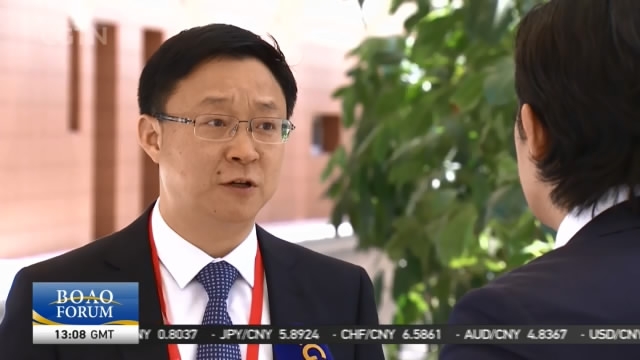
21:50, 09-Apr-2018
Tech Cooperation: Trade barrier is a double-edged sword

An escalation of the recent trade tension between China and US has set more barriers for tech cooperation between two countries. CGTN's reporter Xia Cheng sat down with iFLYTEK Chairman Liu Qingfeng and INSPUR Chairman Peter Sun to get their views on the future of Sino-US tech cooperations. Take a listen.
LIU QINGFENG iFLYTEK CHAIRMAN:
The model has shifted from China importing US technology to cooperating with the US on developing technology. Many of our US partners want to bring iFLYTEK's technology that has been successful in China to the US market for localization. Now the US is set to put quite a few trade barriers on Chinese tech products in the US market. It will affect our current partnerships in the US. But I think the impact is not only on China. The US will be hit too. But it may also force Chinese tech industry to evolve and better serve our home turf and non-US markets. The pressure might push us to become more innovative.
China has strength in algorithm and data, policy support and consumer curiosity. We do have reliance on US chips. But in AI, we need a full spectrum of chips for different sub-segments and functions. And Chinese chip makers are overtaking international peers in market positions in some of those niche markets.
China needs to enhance its IP right protection with fair treatment for both Chinese and international companies. Without that, Chinese companies will also lose motivation to develop original technology.
PETER SUN CHAIRMAN & CEO, INSPUR:
China's government, healthcare and education needs their own cloud computing and big data platforms. We are looking to invest in those fronts. The healthcare sector in China accounts for 3 to 5 percent of the GDP, while in the US the number is 15%. That means huge upside for growth. On Blockchain, we want to build quality control systems with that technology. With blockchain, you can track the origins, production process and price changes of a certain product to make it easier to eliminate counterfeit and low-quality products."
The Chinese market and the US market have mutual dependence, together, they also need to expand to third markets together. Our joint ventures with IBM and Cisco are doing exactly that. Both governments should be aware of that too. Chinese companies right now seem to be growing faster in innovation than American companies. That worries the US. But the overall scale and scope of technological innovation in China is smaller than in the US. Technology trade is based on agreements between the buyers and the sellers, it has to be fair. I don't think American companies are stupid to give their technology without consent. It is a fair game. China has reliance on US chips, so do other markets. And all the market players will find ways to break the US dominance.

SITEMAP
Copyright © 2018 CGTN. Beijing ICP prepared NO.16065310-3
Copyright © 2018 CGTN. Beijing ICP prepared NO.16065310-3